On April 6, the premiere of Shostakovich’s opera “Lady Macbeth of Mtsensk” will take place at the Bastille Opera in Paris. In the role of the merchant Boris Timofeevich Izmailov, he is a soloist of the Moscow Academic Musical Theater named after K. S. Stanislavsky and Vl.I. Nemirovich-Danchenko Dmitry Ulyanov. A Culture correspondent met with the famous bass.
culture: A few years ago, you regarded your role in Lady Macbeth at the Salzburg Festival as “an extraordinary gift of fate.” Do you perceive it the same way today?
Ulyanov: I don't know yet. In Salzburg, everything worked out well - the audience received it wonderfully, there were good reviews. It’s unknown what will happen now.
culture: What reading does the Polish maestro Krzysztof Warlikowski, known for his unconventional approach to the classics, offer?
Ulyanov: Krzysztof moved the action to the present day. He strained the relationship between the characters to the limit, bringing them to a semi-animal state. He intensified passions so much that sometimes it becomes scary. Izmailov is an oligarch with his own desires, joys and sorrows.
culture: Would Shostakovich recognize his brainchild?
Ulyanov: I think yes. And I would approve.
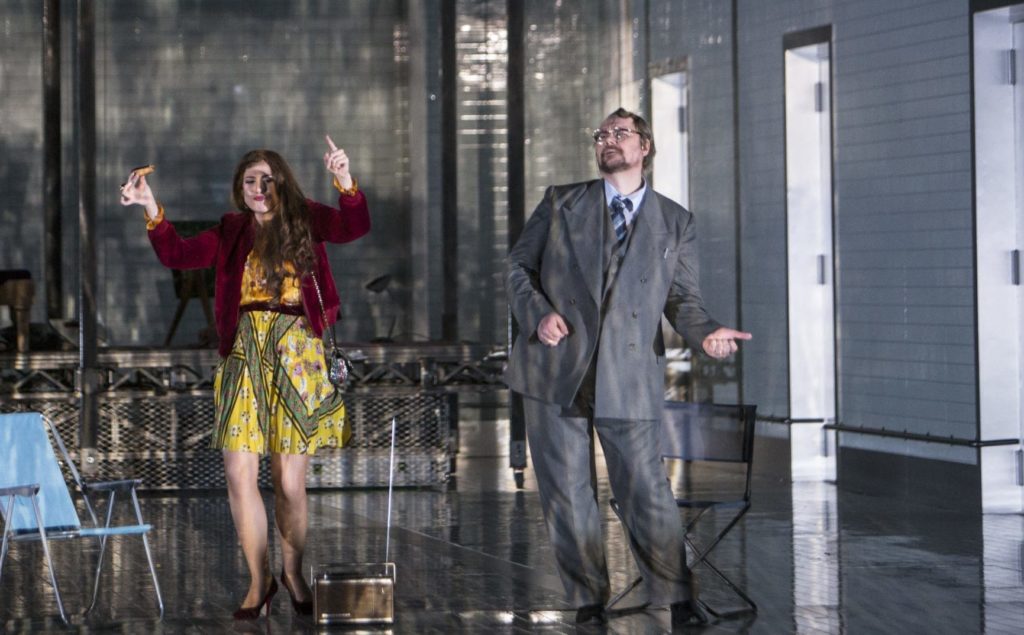
culture: Opera is an elitist art, accessible only to savvy audiences. Does it absolutely need to be popularized and brought to the masses?
Ulyanov: One of the purposes of opera is to raise the general cultural level. So it needs to be popularized. The question is whether people are ready for this. If a person is not mature, then no matter how much you try to prove that opera is better than hip-hop or rock culture, it will be difficult to convince him. But such attempts must be made.
culture: Some critics note the “Hollywoodization” of the opera, its transformation into a show. Do you agree?
Ulyanov: Everything evolves, and opera is not a monument, it is undergoing changes. Search is necessary, but we must maintain the classic base. As for “Hollywoodization,” I don’t know how to feel about it. Everything has the right to exist - the question is, within what framework and to what extent. But music must remain dominant.
culture: Today, as one expert wittily observes, opera is listened to with the eyes, not the ears.
Ulyanov: I do not think so. The visuals are, of course, important, but people come to listen to the music. Opera is a synthetic genre. It combines both dramatic and musical components. This is a complex dish. When a Michelin-starred restaurant serves gourmet food, you don’t want to break it down by ingredients and try to understand how it’s made. So it is here.
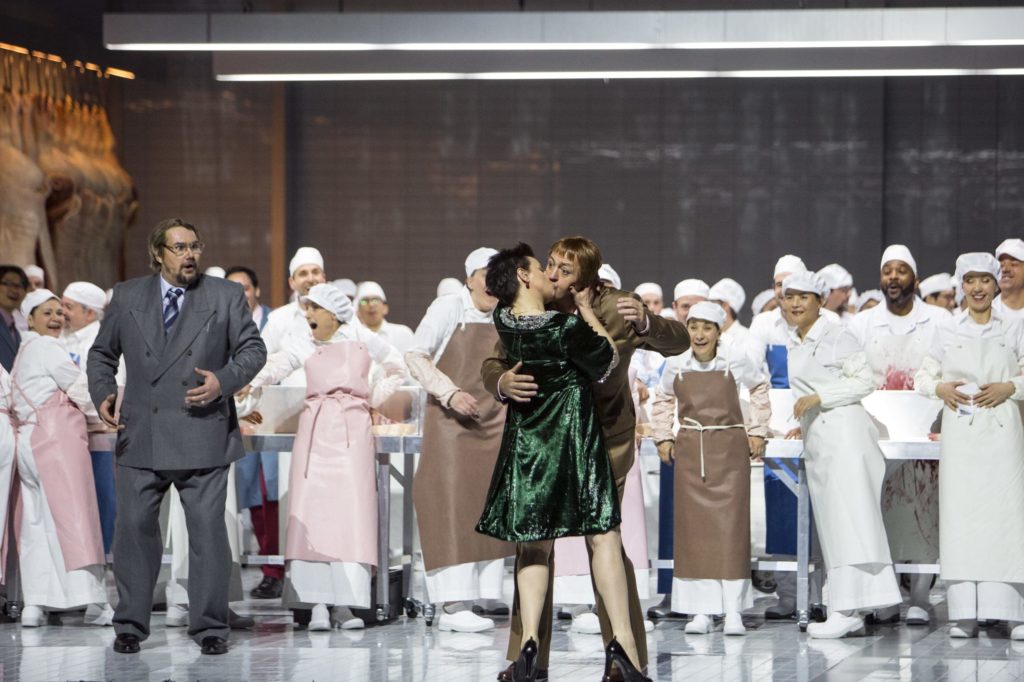
culture: Does “Boris Godunov” benefit from moving to the present day?
Ulyanov: Hard to say. There must be a golden mean in everything. If I were the director of the Bolshoi Theater - which is impossible - I would release two Godunovs. On the Historical Stage - classical, with costumes. And on Novaya there is a modern production.
culture: Today, it’s a rare performance without nudity - both female and male...
Ulyanov: I noticed this too. There is a formula for a good German production: you must be naked on stage, shed blood and commit a terrible murder. Maybe this is where “Hollywoodization” lies?
culture: Music lovers are wondering whether there is a future for opera and what it is like.
Ulyanov: There is undoubtedly a future, but I can’t answer which one. I am in favor of preserving the live sound of opera, despite all attempts to digitize it. On the one hand, this leads to popularization - broadcasts in cinemas; on the other hand, it turns opera into 3D cinema. It’s as if people are being told: “Opera has come to your home, grab some popcorn, sit down - here’s the sound, here’s the artist opening his mouth and you can see on half the screen what kind of filling he has.” This is to her detriment. When the New York Metropolitan began broadcasting films, the audience disappeared from the hall. But, I repeat, the opera will live, and it cannot be replaced by anything else. She is a manifestation of spirit, of love. Where else can you hear such music?
culture: Is YouTube good or bad for opera?
Ulyanov: Everything is complicated... On the one hand, it’s good, because everything becomes accessible. On the other hand, the quality leaves much to be desired. I have my own channel where the team posts some recordings, but we are strictly selective.
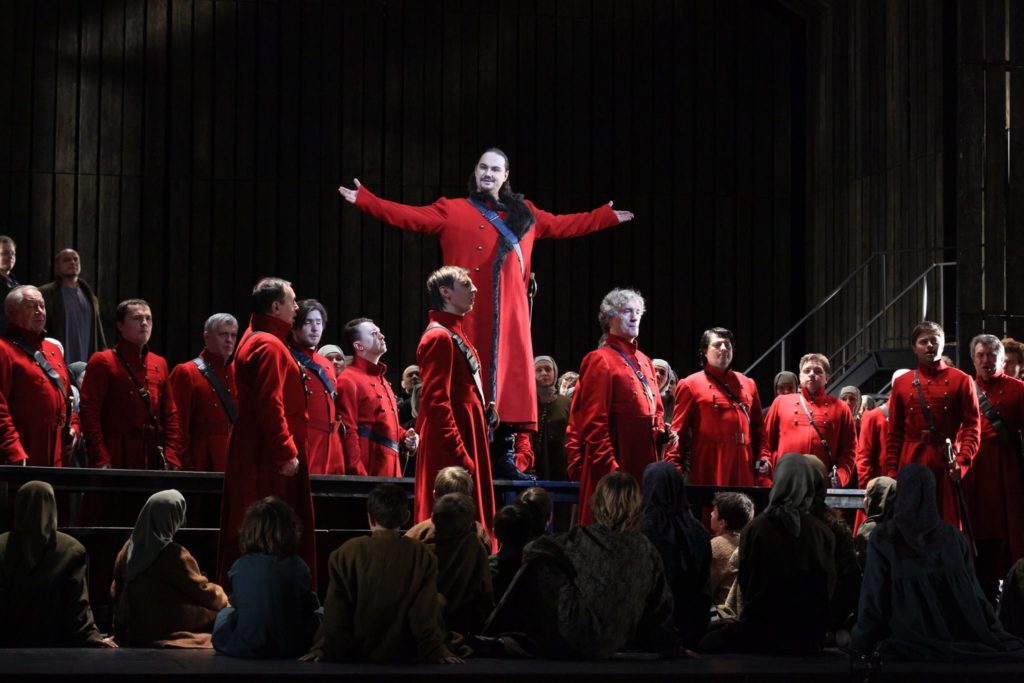
culture: The director and conductor usually live like a cat and a dog, says famous director Andrei Shcherban. Is he exaggerating?
Ulyanov: The director makes his mise-en-scène, and the conductor tells him: “No, this is not what I need at all.” It would be better for the singer if both went into a corner and did not interfere with the singing. Therefore, an interesting process always takes place on stage. Everyone wins their place, and the singer tries to survive between the director and the conductor.
culture: Does the public go primarily for the votes?
Ulyanov: Not necessarily, it goes to the individual. This could be either a singer or a director. For example, Dmitry Chernyakov, who is now on a huge rise. When you hear about his new production, you immediately want to go see it. It's the same with performers. When a figure of the caliber of Anya Netrebko, Olya Peretyatko or Ildar Abdrazakov appears, the performance is rated higher. Nobody will go to see an unknown artist.
culture: Without begging for Chernyakov's great achievements, one cannot help but recall that at the recent Paris premiere of Berlioz's opera Les Troyens, half of the audience applauded him, the other booed.
Ulyanov: Chernyakov always evokes absolutely contradictory feelings - part of the audience boos him, while the other applauds him. Maybe this is the specificity of the perception of his performances?
culture: Doesn’t the fact that Russia is a “ballet-centric” country hinder the national opera?
Ulyanov: I have been serving at the Stanislavsky and Nemirovich-Danchenko Theater for many years, now I work at the Bolshoi Theater and I don’t notice this. There are two parallel universes. Lately there has always been a stir in our two theaters, with the halls full. Among the audience there are balletomanes and opera lovers - it's a matter of preference.
culture: Several years ago you said that the best operatic voices are in Russia. Do you still think so?
Ulyanov: Apparently, I meant Russian music. Who can sing it better than us? In Russia the vocal nature itself is very good, there are a lot of talented guys. If previously the “curtain” was a hindrance, now there is an opportunity to enter the world stage. Look how many singers we have who are making successful careers in the West, on the level of Anya Netrebko.
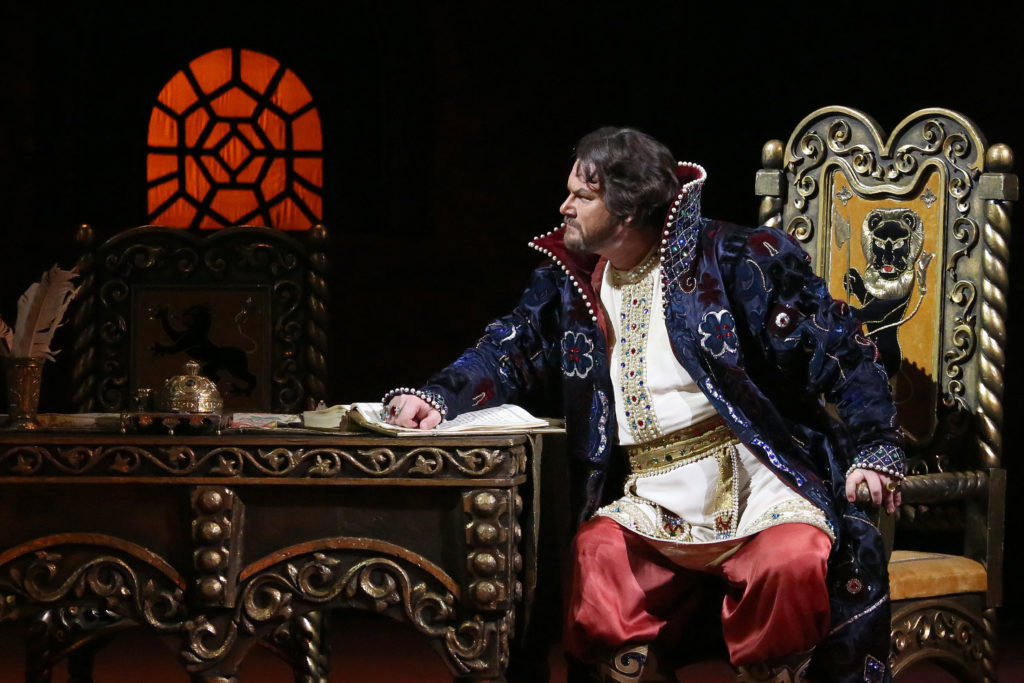
culture: We like to deify art in all its forms.
Ulyanov: The voice is a gift from God. It is important to realize this and subordinate it throughout your life. To some extent, you become a hostage to this gift. Whether you like it or not, you must repay the “debt” with your work, perseverance, and love for music.
culture: Is our domestic school not being eroded under the powerful pressure of globalization?
Ulyanov: No. We have very strong traditions that need to be preserved. There are, of course, problems with education and training. Old teachers are leaving, so new teachers must come to replace them.
culture: You performed many wonderful parts. Do they leave a mark on your character?
Ulyanov: The process of leaving the role is very difficult for me, especially if it is Boris Godunov, with whom you live your whole life on stage. Sometimes it is not clear whether you have left the character or are still in the role. After the performance I can never sleep; I come to my senses the whole day. Sometimes after “Boris” my legs can’t even move.
culture: “And the boys are bloody in their eyes...”
Ulyanov: Thank God it doesn't come to that (laughing). But mental strength has to be seriously restored.
culture: “Madame Bovary is me,” Flaubert repeated. Is your Godunov, Kutuzov or Pimen also, to some extent, you?
Ulyanov: Despite all the attempts at reincarnation according to Stanislavsky, you still cannot change yourself one hundred percent. But for me it’s important to remove myself from the role. For me, as an artist, the biggest compliment is when after the performance they don’t recognize me and ask in surprise: “Did you sing Kutuzov? Can't be!"
culture: Is success making you dizzy?
Ulyanov: It is important, but the point is not in it, but in the love of music. Of course, it is difficult to work without success. It's nice to be appreciated. But I didn’t come into the profession to receive flowers. It is important for me to touch the mystery of music and share this feeling with others.
culture: As far as I understand, your wife plays a huge role in your creative destiny.
Ulyanov: We have been together with Elena for twenty years - she is my back, support and support. Elena is, first of all, a wonderful pianist; she works at the Gnesin Academy in the vocal department and in the conducting department. She and I have a creative tandem - we are constantly at work, learning new parts.
culture: Are the bass friends with each other or are they each on their own?
Ulyanov: Certainly. Competition exists, but it goes away when you see a professional nearby. The bass may not be very open to the world. We are serious, thorough men. This is for tenors just to take a walk (laughing). But the best Don Juan is the bass. I sang this part myself. So another question is who is the real Don Juan.
culture: You made your debut as a teenager in the drama theater. Would you like to return or try your hand at cinema?
Ulyanov: There is always temptation. When I came to opera, I realized that it was a much more powerful dramatic genre than theater. But it would be interesting for me to try it in cinema - with Konchalovsky, Mikhalkov, Lungin.
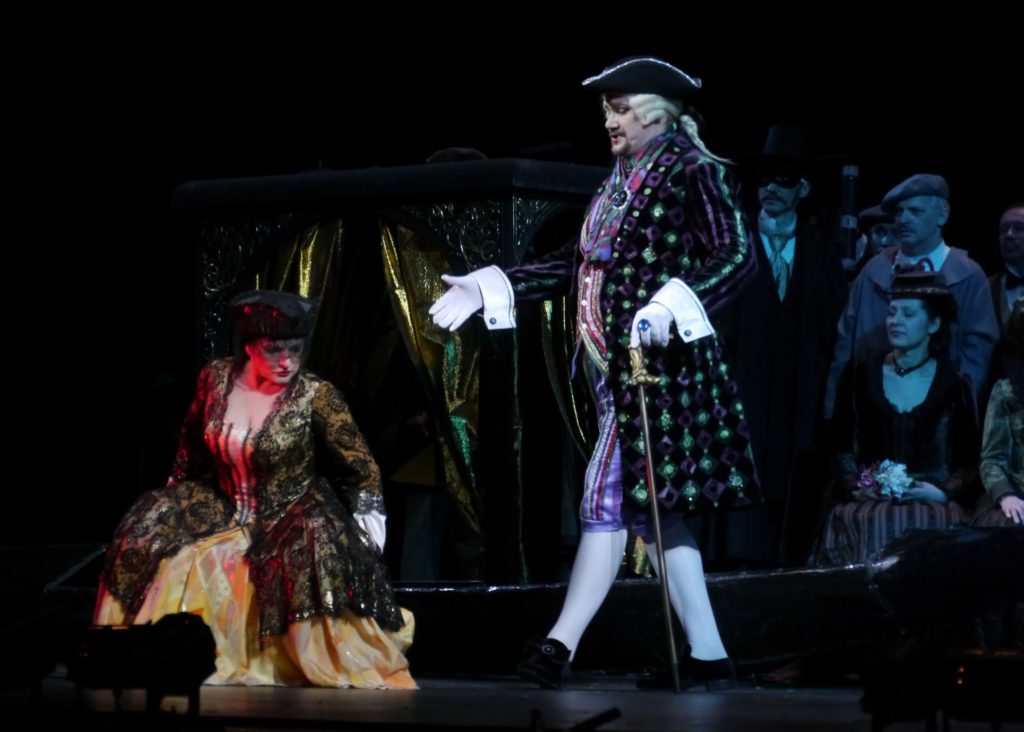
culture: Dmitry Shostakovich and Evgeniy Svetlanov were passionate football fans. Does this game excite you?
Ulyanov: I am also a fan - “there is no better team in our country than CSKA.”
Whenever possible, I run to the stadium. As a boy I stood at the gate. The coaches who watched the yard teams even wanted to take me to school, but it didn’t work out. Since then I have also been a fan of goalkeepers. And I started rooting for the army team as soon as young Igor Akinfeev appeared on the team.
culture: What do you expect from tomorrow creatively? “In the hope of glory and goodness I look forward without fear”?
Ulyanov: Only new roles, new platforms and interesting projects with wonderful conductors and directors. I have a lot of Russian roles now. I have not yet sung Mephistopheles in Faust. It is interesting to touch upon Wagnerian roles such as King Mark in Tristan and Isolde. I would like to see more Verdi heroes, for example, Zacharias in Nabucco. There is a lot of work ahead on Kochubey’s part in Mazepa. In May I have several performances in Moscow - "Lucia di Lammermoor" and "The Tales of Hoffmann" at the Stanislavsky and Nemirovich-Danchenko Theater, and in June - Philip in "Don Carlos" at the Bolshoi. I will return to Paris at the end of this year with “Prince Igor”. Zhenya Nikitin (bass of the Mariinsky Theater. — "Culture") will sing the title role, and I will sing Prince Vladimir Galitsky.
Photo at the announcement: dmitryulyanov.ru
03.04.2019
Yuri KOVALENKO, Paris


